
Aaron Veart had the pleasure of asking Rev Karl Faase a few questions about life, leadership and the journey so far.
Tell us a little bit about life growing up?
My earliest years were spent in country NSW. I was born in Gunnedah; my father was working on a property about 100kms south of Gunnedah, near a small town called Tambar Springs. My Dad become a Christian at Tambar Springs Anglican church, a tiny country Anglican parish and soon after felt called into ministry. A few years after that our family moved to Armidale where my parents ran a children’s home, called Coventry Home.
The home was a revolving door of around 18 other kids (I also had 2 siblings), all living in one big country home – basically I grew up with a family of 20-25 people for ten years. We went to church each week at the Armidale Cathedral. I attended the local public high school where my academic achievements were most underwhelming! I left home at 17 to take up a job in Lithgow in a bank.
How did you come to faith?
After my father become a Christian and especially with my parents working in a children’s home operated by the Anglican diocese, our family always had faith as a significant part of our lives. I made an important personal choice at the Entrance on the foreshore park. Alan Walker was speaking at an outdoor event, an evangelistic rally and our family went along. At the end of his message and in response to his invitation I walked forward to make a personal choice to follow Jesus at the age of seven.
I don’t think I was radically changed by the event but it still marks the time in my mind where I chose to make faith in Jesus the foundation of my life.
How did you become a pastor and where have you pastored?
After two years in Lithgow I moved to Newcastle to study social welfare; my aim was to follow my parents into working with children. At that time I started attending a Baptist church for the first time, Islington Baptist. During those two years in Newcastle I felt God calling me to work with young people and to work in a Christian environment.
At the end of college I applied for a role in a Church in Sydney, Beecroft Uniting Church. In a surprising move they offered me the role! I had little experience in leading, and no theological training, yet they asked if I’d like the position. The time at Beecroft was very significant. I met and married my wife Jane, the ministry role with youth went well and I felt a “call” into long-term vocational ministry. I did feel the pressure to pick a denomination. I had grown up in the Anglican Church, had two years in a Baptist Church and was working in the Uniting Church. I decided to join the Baptist denomination and was offered a role at Hornsby Baptist as a part time youth leader as I studied at Morling College.
During my third year at Morling I was asked to consider a role in Melbourne at Syndal Baptist. We agreed to move there after I completed my degree – we drove to Melbourne two days after graduating to start at Sydnal Baptist, a great church. After the five years in Melbourne we moved back to Sydney and started as the associate pastor at Gymea Baptist, and then moved into the senior role after the then senior pastor, John Robinson, tragically fell ill and was not able continue. I have been the senior pastor at Gymea since 1996.
Alongside these roles, I have also been involved with the Lausanne movement, chaired Festival ’96 with Franklin Graham, co-founded Arrow Leadership in Australia, co-created the “Jesus. All about Life” media campaign and continue to sit on boards such as Samaritans Purse, BGEA, Christian Television Australia, Sydney Prayer Breakfast and others.
Gymea is a success story – What are the most important aspects of it’s success?
One of my favourite quotes is from the scientist, Isaac Newton:
“If I could see further than others it’s because I stood on the shoulders of giants.”
That is very true of Gymea Baptist. Since forming in 1949 it had only had four full time senior pastors before I took the role. These were significant leaders who built Gymea into a great church. We are building on that legacy. Over the past years in my role as the senior pastor, I think the other keys have been
- Clear & focused direction
- Great staff
- Picking talented younger people for staff and growing their ability
- Taking risks, stepping out in faith
- Constant evaluation and prayerful consideration of why we do what we do
- A focus on evangelism and mission that has been part of the church since the 1970’s with the birth of Christian Surfers and Bike for Bibles.
What are some of your greatest ministry memories?
- Seeing 10,000 youth come to the youth event of Festival ’96 at Parramatta Park after only deciding 4 months before to have a youth night. Over 600 responded that night.
- First gathering of the Australian Arrow Program group in Melbourne
- Launch of the ads and billboards for “Jesus. All about Life” in Adelaide after taking 4-5 years to build the project
- The creation and launch of “The Mens Series”, a new series filmed live with a studio audience at Foxtel, North Ryde
- Opening the new Gymea Baptist auditorium which cost $7.5 mill to build – a great moment of faith and commitment for the whole church
- Working with my wife Jane and the team to interview the likes of John Lennox and Nicky Gumbel for the Towards Belief series in the UK, Australia and USA
What have been some of your challenges?
There have been a number of these moments but I will mention just two.
In 1996, after taking on the senior pastors role at Gymea after the church had moved from a period of time with four full time pastors, to just me with a part time youth coordinator and an administrator. Gymea had just been listed in the Baptist Union newspaper, giving the stats of churches that were growing in membership and those failing. We were in the bottom few of those failing. Many people were leaving due to some internal tension and Gymea was in poor shape as a church. It was a challenging couple of years.
The second was around the building program for our new auditorium. We had just agreed to a $3.2 mill contract to build the new auditorium, part of the whole $7.5 mill development. We signed the contract in November 2008, just eight or so weeks after the collapse of Lehman Brothers and the full-scale onset of the Global Financial Crisis. In March 2009 we had the first meeting with the new builders who informed us there was a problem with the soil that would mean a $200,000 variation on the building costs. Also that week one of our members, who was the most generous giver to our budget told me he was leaving the church. It was a bad week!
As a pastor and a leader, what advice would you give to churches/church leaders?
- Stay focused on your own personal faith and development. Don’t lose your own faith in trying to build others
- Look after yourself physically, emotionally and socially. Know what rebuilds your reserves of energy and sustains you for the long haul and build them into your schedule
- Get organised. Your ministry will be stalled and your leaders disheartened by bad personal management
- Find ways of holding yourself and your team to the directions and outcomes you have committed to pursuing. It’s too easy to allow for excuses and never achieve what you are called to do
- Find out what you are not good at and stop doing it
- Don’t just try to build a happy staff, who love being together. Build an effective staff who create strong ministry outcomes
- Release people into ministry. Encourage them to pursue the vision and passion God gives them. Have fewer of your own ideas and visions, and put energy into releasing the vision and ideas of others.
- Choose staff and key leaders carefully. Only choose key leaders and staff who can build other leaders. Great staff build your ministry, poor staff choices will break your spirit.
- Read as much as you can
- Don’t fall for trendy ministry directions and ideas from people who don’t lead, run or develop ministry themselves. They are great for broadening your thinking, they are bad at giving you practical ministry direction that works
- Keep a sense of humor. Don’t take yourself too seriously. Be able to laugh at yourself
What is Olive Tree Media?
Olive Tree Media is a non-profit organisation that seeks to create excellent Christian media products for multiple media outlets (TV, DVD, web, radio, print) for Australia and international audiences. These products are designed to encourage people into Christian faith and build their personal commitment to Jesus
What is your vision for Olive Tree Media and how can churches support it’s work?
Our vision for Olive Tree Media is to create quality Australian resources that individuals and churches can use in life groups, specific interest groups such as men’s groups, or distribute to people to watch in their homes, that will influence them in their Christian faith.
We have had many churches, especially in regional areas, use the series we have produced. Our task is to create helpful products that can be used by the local church. The churches can support us by making use of these products and give us feedback that informs us as to how we create better resources in the future for greater impact.
In your opinion what are the greatest threats and opportunities that face Baptist Churches at the moment?
I fear that one of our great threats is continuing to produce leaders that fail to have a clear and expansive vision to build churches and ministries large enough to have a broad influence. Much of what is talked about in some leadership circles is small-minded, cynical and negative, only pointing out where churches are failing rather than encouraging and developing big-hearted leaders, full of courage and willing to have ago. The future of Baptist Churches will not be built on small boutique efforts (as useful as some are in specific circumstances) but rather having the vision to build significant ministries with wide gospel impact.



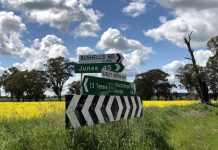








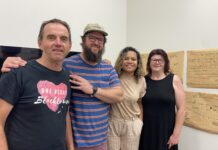





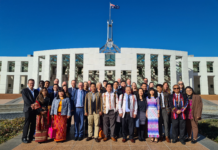
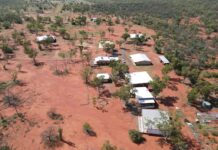
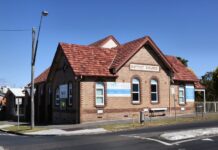



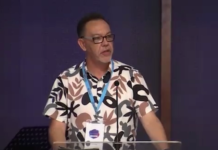

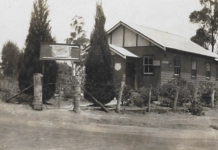
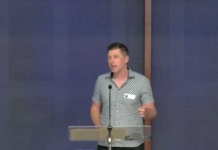








I come way back
from a Reformed background,at about 45 years of age,I was attracted to the Pentecostal church and after 10 years or so,i became disappointed with all the things that were going on ,so left and went to a Baptist church.I missed the worship and the freedom they had in the Spirit.but now find there is a change in the Baptist churches,a greater expression of the need of the Holy Spirit in the doctrine, and the teaching which I think is so precious as now i feel at home and am satisfied ,praise The Lord.